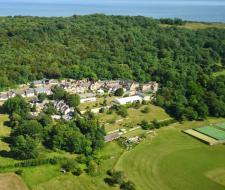Study in Wales. 17 best institutions in Wales
-
 from 2950.00 £ / 10 weeksApply with documents
from 2950.00 £ / 10 weeksApply with documents -
 In 2018 - 73.5% of A level students achieved A - A*
In 2018 - 73.5% of A level students achieved A - A* WalesSwanseaCurrently watching: 1from 23800.00 £ / yearApply with documents
WalesSwanseaCurrently watching: 1from 23800.00 £ / yearApply with documents -
 2nd in the UK for Student Satisfaction
2nd in the UK for Student Satisfaction WalesSwanseaCurrently watching: 1from 11000.00 $ / yearApply with documents
WalesSwanseaCurrently watching: 1from 11000.00 $ / yearApply with documents -
 from 2965.00 £ / termApply with documents
from 2965.00 £ / termApply with documents -
 from 9063.00 £ / termApply with documents
from 9063.00 £ / termApply with documents -
 Apply with documents
Apply with documents -
 Apply with documents
Apply with documents -
 from 4600.00 £ / termApply with documents
from 4600.00 £ / termApply with documents -
 #68 in Best Global Universities in the United Kingdom
#68 in Best Global Universities in the United Kingdom WalesLlandoveryCurrently watching: 2from 9500.00 £ / yearApply with documents
WalesLlandoveryCurrently watching: 2from 9500.00 £ / yearApply with documents -
 rated 4th in Wales for impact
rated 4th in Wales for impact WalesSwanseaCurrently watching: 1from 13500.00 £ / yearApply with documents
WalesSwanseaCurrently watching: 1from 13500.00 £ / yearApply with documents
Alternative destinations
Education information
Wales is an extraordinary, beautiful and picturesque country, one of the four main parts of the United Kingdom. This is the edge of boundless lakes, melodic songs and a persistent Nordic character, stunning coastal landscapes and mysterious fogs. In addition to its unique historical, cultural and tourist value, Wales provides an opportunity to get a high-quality, prestigious education. Studies in Wales are becoming more popular with foreign students every year, the country has many advantages.
SMAPSE offers 15 best schools, colleges and universities in Wales, England where international students can get modern and balanced primary, secondary and higher education, as well as study various English language courses.
The structure of education in Wales
Secondary and primary education is compulsory for all citizens from 5 to 16 years old. Traditionally, educational institutions are divided into public (usually free) and private (paid). Studies are conducted both in English and in Welsh - the choice is made by the student. The peculiarity of studying in Wales is the high variability of the programs, focus on the practical application of the acquired knowledge, personal approach to each student.
What is the structure of education in Wales?
1) Kindergartens and nurseries, preparatory classes for children from 0 to 5 years.
2) Elementary schools are divided into two stages: 1-2 grades (5-7 years, KS-1) and 3-6 classes (7-11 years old, KS-2)
3) Secondary schools are also divided into two stages: grades 7-9 (11-14 years, KS-3) and 10-11 classes (14-16 years, KS-4 ). At this stage, the compulsory (incomplete) secondary education (GCSE) is considered complete.
4) Sixth Form and final grades, colleges - 12-13 (16-18 years): for students who plan to continue their studies in universities and higher schools.
Admission to the university requires an A-level certificate - this programme is common to all UK universities.
As for higher education (there are approximately 20 universities in the country), studying in Wales is divided into following stages:
- Bachelor's degree (takes for 3 years)
- Master's degree (+1 year)
- Postgraduate studies, Ph.D. (+3 years)
Tuition fees, studying conditions for foreign applicants in TOP-15 schools and colleges in Wales
It is legislatively established that foreign students living and studying in Wales can pay a maximum of 1,255 pounds per year for studies. There are also subsidies for students who have chosen Welsh as the main language of studying.
The state hospitably welcomes foreign students - the choice of studying areas is quite wide, and requirements are quite standard. It will be required to provide a school certificate (or a Bachelor's / specialist diploma if you are applying for a place in a Magistracy), all international certificates, and confirm good language proficiency by passing a profile exam.
Despite being a member of the United Kingdom, a small coastal state carefully preserves its national identity and uniqueness. The official language here is not only English, but also Welsh. It is very melodic, smooth, beautiful and pleasant - in particular, this explains the popularity of the song genre and Welsh opera all over the world. Welsh is a unique example of how historical, ancient language is actively used and developing in the modern world: many residents of remote villages even do not understand English well. On the streets of the capital Cardiff, Welsh can be heard everywhere.
Study in Wales: A Guide for foreign students
Wales, a distinctive part of the United Kingdom, offers a unique educational experience, blending its rich cultural heritage with modern academic practices. If you're considering studying abroad in Wales, it's essential to understand the structure of its educational system, the process of applying for a study permit, the associated fees, and the best programs available.
Educational Structure in Wales
-
Early Childhood Education: Catering to children from birth to 5 years, Wales offers a range of kindergartens, nurseries, and preparatory classes, focusing on early development.
-
Primary Education: Divided into two levels, primary education in Wales starts with grades 1-2 (ages 5-7) and progresses to grades 3-6 (ages 7-11).
-
Secondary Education: Further divided into two levels, secondary education encompasses grades 7-9 (ages 11-14) and 10-11 (ages 14-16). Completion of grade 11 marks the end of compulsory education, marked by the General Certificate of Secondary Education (GCSE).
-
Further Education: Sixth Form and colleges cater to students aged 16-18, preparing them for university education. An A-level certificate is required for university admission, a common prerequisite across the UK.
Higher Education in Wales
With approximately 20 universities, higher education in Wales is structured into:
-
Undergraduate Programs: Lasting three years, with an option for a four-year Master's track.
-
Master's Programs: Generally a one-year commitment.
-
Doctoral Programs: Typically extending over three years.

What advice do you have for those who want to go to top universities in the UK?
Carefully consider all the information about the university of interest, including the cost - prices vary greatly, so you need to understand what options you will financially pull. Carefully prepare for tests in English (IELTS in the first place) - this will be needed for admission to any British university. Consider the courses that interest you more than others, and check the academic requirements for them, make sure that you have time to study this area well in your high school.
Study in Wales. Cost and Fees for International Students
Studying in Wales is relatively affordable, with a cap of 1,255 pounds per year for international students. Additional subsidies are available for those who choose Welsh as their main language of study. Admission requires a high school diploma or an equivalent bachelor's degree for postgraduate programs, along with language proficiency certification.
Why choose Wales to study abroad?
Studying in Wales is not just about academic excellence; it's an immersion in a unique cultural and linguistic landscape. The Welsh language, a cornerstone of the national identity, is widely spoken alongside English. This bilingual environment enriches the study abroad experience in Wales, making it a compelling choice for international students.
Wales maintains its individuality within the UK, with its education system overseen by the Welsh Government. The focus on practical application, personalized learning, and a diverse range of programs makes studying in Wales an attractive option for students worldwide.
Remember, studying in Wales is not just an academic journey; it's an adventure into a land of rich history, vibrant culture, and linguistic diversity. Whether you're pursuing an undergraduate degree or a more advanced program, Wales offers a welcoming and dynamic environment for your studies.
Literature and references
- Education in Wales — Wiki
- Education Wales: Our national mission: high standards and aspirations for all
- Higher education in Wales: preparing for a new tertiary education and research framework
- National Strategy for Educational Research and Enquiry: endorsements
- Wales Journal of Education
- The Tertiary Education and Research (Wales) Act: One year on



